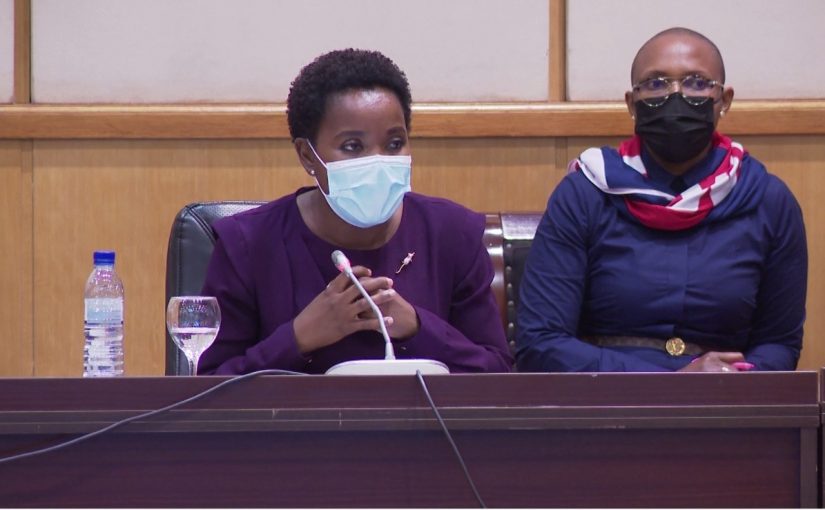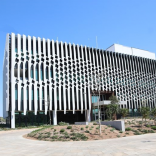Galp Mozambique donates 10 tonnes of food products to Makobo
Mozambique: Commission of inquiry confirms sexual abuse at women’s prison – Watch

Photo: TVM
The Commission of Inquiry set up by the Mozambican Ministry of Justice to probe allegations that guards at the Maputo Special Penitentiary for Women (EPEMM), better known as the Ndlavela Women’s Prison, force women inmates into prostitution, has found that there is indeed behaviour which may have led to sexual exploitation by some prison guards.
The findings were presented on Wednesday in Maputo by the commission of inquiry, set up by Justice Minister Helena Kida, shortly after the anti-corruption NGO, the Centre for Public Integrity (CIP), had denounced acts of sexual exploitation against women prisoners.
The rapporteur of the commission, Elisa Samuel, said 53 of the 96 female inmates were interviewed, as well as members of the prison management and guards. There was an in-depth examination of the evidence tabled by CIP, including documents, photographs and videos,
From the interviews, female inmates, she said, reported systematic failures of the prison management which led to violence, sexual abuse and harassment of inmates by some guards as well as by third parties (unrelated to Ndlavela) with the collusion of high ranking staff. Some of the abuse led to pregnancy, childbirth, miscarriage or abortion.
Though the commission did not find sufficient evidence to prove some of the specific denunciations by CIP, it has recommended that the bodies of the administration of justice and civil society in general keep working to monitor and prevent sexual exploitation and other forms of violation of women’s rights in the country’s prisons.
The Commission could not find evidence for the prostitution racket alleged by CIP, whereby the inmates were taken outside the prison to a nearby pension for sexual encounters, arranged by guards, with clients who paid the guards large sums of money.
Instead, the sexual abuse took place inside the prison and not outside. Inmates were forced to have sexual relations with guards, and with men brought into the prison by guards. Those prisoners who refused to submit suffered reprisals and humiliation, and on occasion were even denied food.
Some of those interviewed by the Commission confirmed that high-ranking prison staff collude with the introduction into the prison of outsiders to have sexual relations with inmates. They also bring alcoholic drinks, cigarettes and meat into the prison, for parties held at the weekends.
“Sexual abuse by prison guards are acts of torture or cruel treatment,” declared the Commission, and disciplinary measures should be taken against those involved.
The commission urged the Justice Ministry to ensure that women prisoners are supervised only by women guards, and that all forms of physical and sexual abuse of inmates must be explicitly prohibited.
The commission’s report says the Ministry must ensure that inmates are aware of their rights against sexual abuse and of their right to complain in the event of abuse. Any complaint should be fully and independently investigated.
Norms should be established ensuring that the complaints filed by female inmates are made under the best conditions of safety, confidentiality and protection. Appropriate care should be provided to victims of sexual abuse, through the creation of a technical group for psychological counseling of victims of all forms of violence in the prisons.
The commission also proposed that the government reform prison legislation so as to criminalise sexual intercourse between prison guards and female inmates.
It said the government must ensure that all the complaints in the report are probed and, should they be confirmed, all those involved should be prosecuted.
The commission also said the Public Prosecutor’s Office will continue the investigation into the findings brought by CIP.
CIP promises that it will react to the report from the Commission of Inquiry on Friday.












Leave a Reply
Be the First to Comment!
You must be logged in to post a comment.
You must be logged in to post a comment.